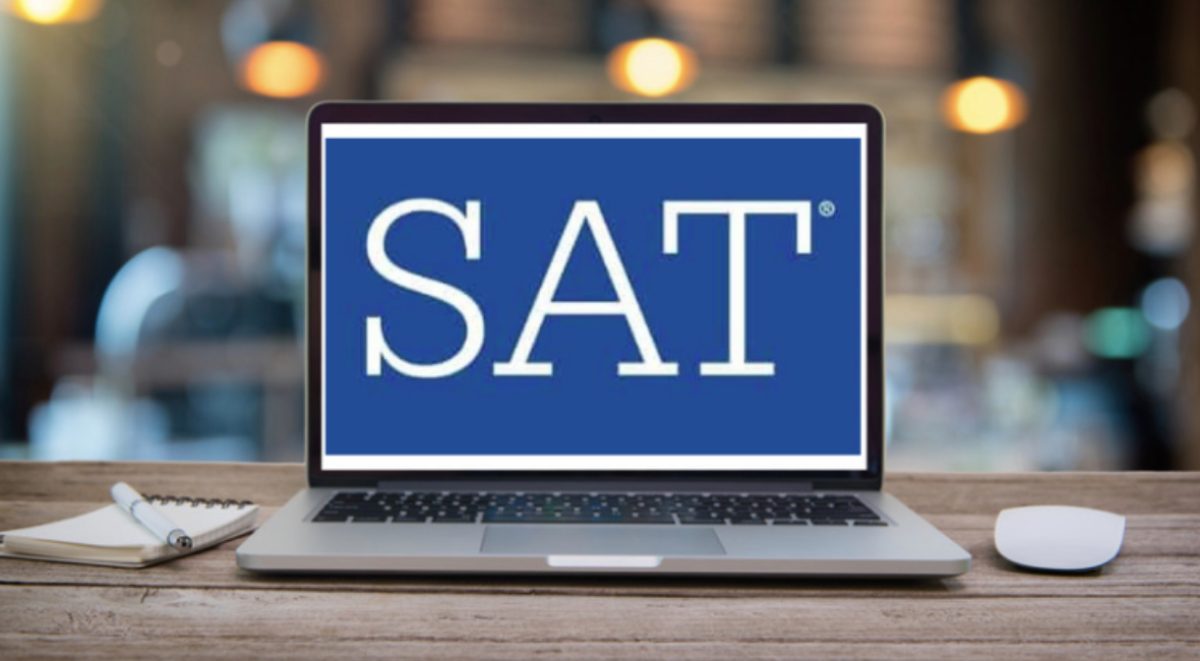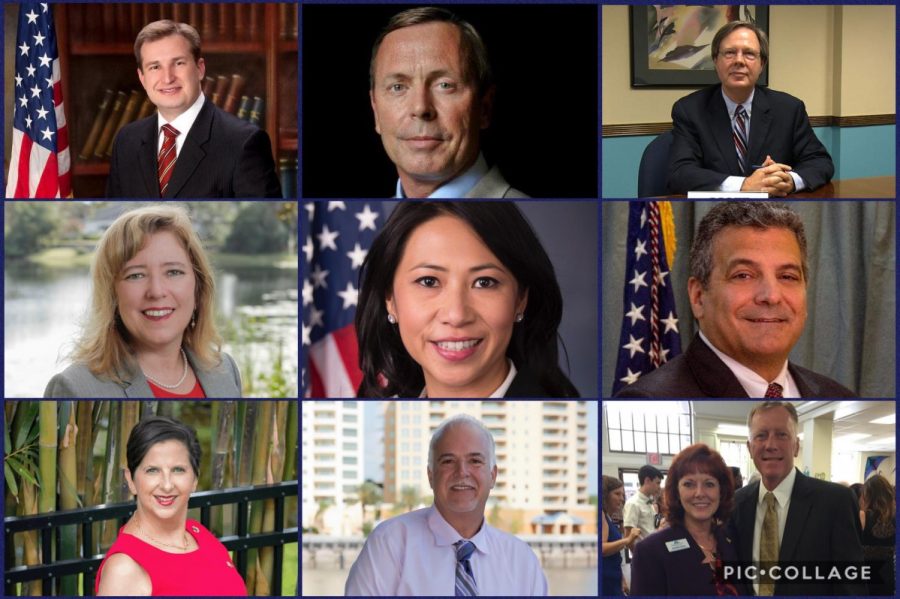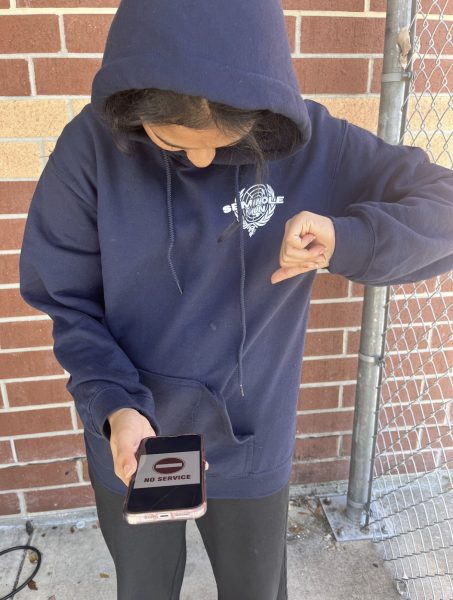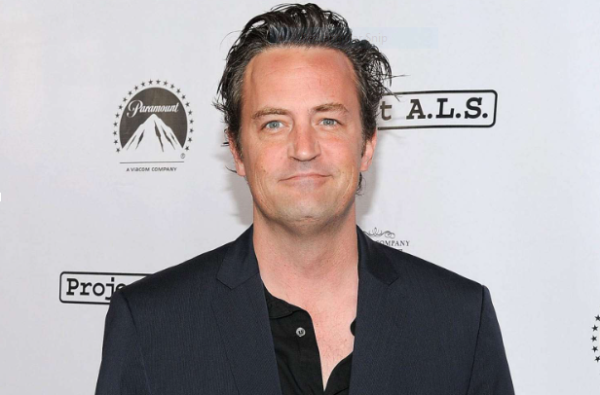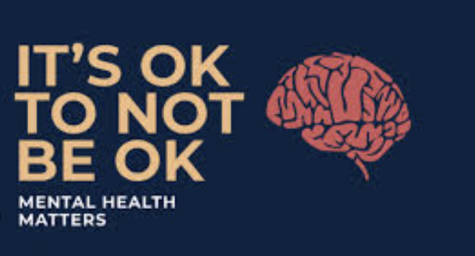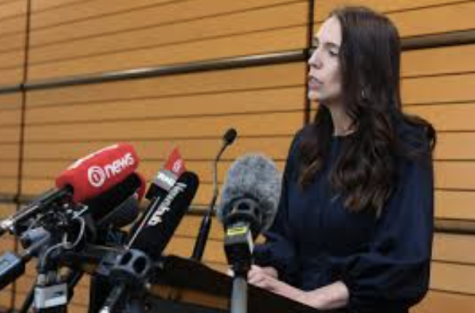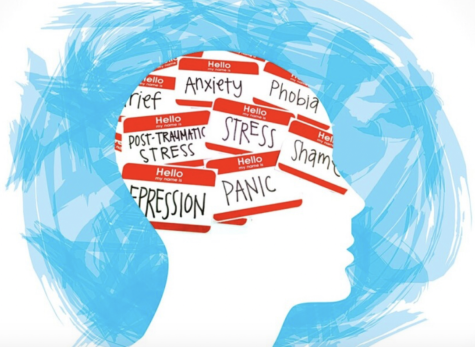Local and State Election Results
Many people are aware of the presidential election, but local elections are often overlooked. These people (shown above) and thousands of other government officials across the country directly impact our lives.
November 10, 2020
In all of the frenzy and excitement surrounding the presidential election, local elections often go ignored. However, local elections are essential to communities. They establish ordinances that keep communities in order and can provide a forum for citizens to voice their concerns.
Various items come up on a local ballot, ranging from sheriffs and city council members to state constitutional amendments and state congressional elections. These items are often overlooked because they are viewed as minuscule in comparison to the nationwide election. In contrast, they should not be disregarded but rather considered carefully as they will affect citizens directly.
State Constitution Amendments
State Constitution amendments are alterations that would be made to the state constitution. These changes affect everyone in the state. In Florida, they are required to be approved by at least 60 percent of voters in an amendment or revision election. They appear on the ballot with all of the other voting items. Six different amendments are being voted on in this election.
- The Citizen Requirement for Voting Initiative would change the language in the Florida State Constitution from “every citizen” of the US over 18 can vote to “only citizens”.This amendment has passed but is expected to have no real impact on elections.
- $15 Minimum Wage Initiative would incrementally increase the minimum wage to $15 per hour by 2026. If this amendment does not pass, the minimum wage would stay at $8.26 per hour and be adjusted annually. This amendment passed.
- Top-Two Open Primaries for State Offices Initiative would establish two-top open primaries for state legislators, the governor, and the cabinet. Two-top open primaries are a type of primary election in which all of the primary candidates, regardless of the political party. The current primary system, in Florida, is closed primaries. Closed primaries are when only registered Democrats can vote in the democratic party, and only registered Republicans can vote in the Republican primary. In two-top open primaries, anyone- regardless of party affiliation- can vote for any primary candidate. This would have only affected state elections. This amendment did not pass.
- “Require Constitutional Amendments to be Passed Twice” would require all state constitutional amendments in the future to be passed twice to take effect. This amendment did not pass.
- Extending the “Save Our Homes” Portability Period Amendment would broaden the period during which a person may transfer “Save Our Homes” benefits to a new homestead property, primary residence, from two years to three years. “Save Our Homes” is a constitutional amendment that placed a cap on the annual value increase on a property with a homestead tax exemption and gives present people, who own and live in their Florida home, a tax benefit. A portability period is a period in which someone is moving to a new home. If this is passed, “Save Our Homes” would apply to people faster after moving. This amendment did pass.
- Homestead Property Tax Discount for Spouses of Deceased Veterans Amendment would transfer the tax benefit to the surviving spouse of a veteran. This would be in effect until the spouse remarries, sells, or somehow disposes of the property. This amendment passed.
Judges
All of the judges on the ballot were unopposed incumbents and were only seeking to be reaffirmed.
State Senate and House of Representatives
These elected officials make the state laws the same way Congress makes laws that apply to the entire country.
- The Florida State Senate District 9 winner is Jason Brouder by an extremely narrow margin. He was the Republican candidate and has previously served in the State House of Representatives. He has a background in healthcare and would like to see more transparent pricing. He is a staunch conservative, which will shape his public policy.
- The State Representative from District 28 is David Smith, a Republican. Most of his previous legislative work has dealt with children and business.
- The State Representative for District 29 is the incumbent, Scott Plankton. Plankton is a Republican and has made the policy a variety of policy changes.
- The State Representative for District 30 is an incumbent Democrat, Joy Goff-Marcil. She supports gun control and healthcare reform, among various other issues.
House of Representatives
Stephanie Murphy was able to keep the district 7 by just barely edging out her opponent. Stephanie Murphy was first elected to the house in 2016. Wanting to bring healthcare prices down, she has been effective at reaching across the aisle to make changes.
County Commission and Other Local Officials
The county commission is a group of elected officials who control the city budget, levy taxes, renew certificates, and deal with other county issues. There are five county commissioners in Seminole County. The new commission is Bob Dalllari, Lee Constantine, Adria Herr, Jay Zembower, and Brenda Carey. They are all Republicans and incumbents, so there are no significant changes.
The supervisor of elections is Chris Anderson. He is a Republican and the incumbent. The incumbent, Jeff Kroll, remains the tax collector and is a Republican. Republican David Johnson, remains the property appraiser. Republican, Dennis M. Lemma remains sheriff. The clerk of the county court and comptroller is Republican and incumbent Grant Maloy.
For more information on specific details and further results, visit https://www.voteseminole.org/2020-general-election-results.




















